How To Remove Acne Scars With The Natural & Medical Treatments
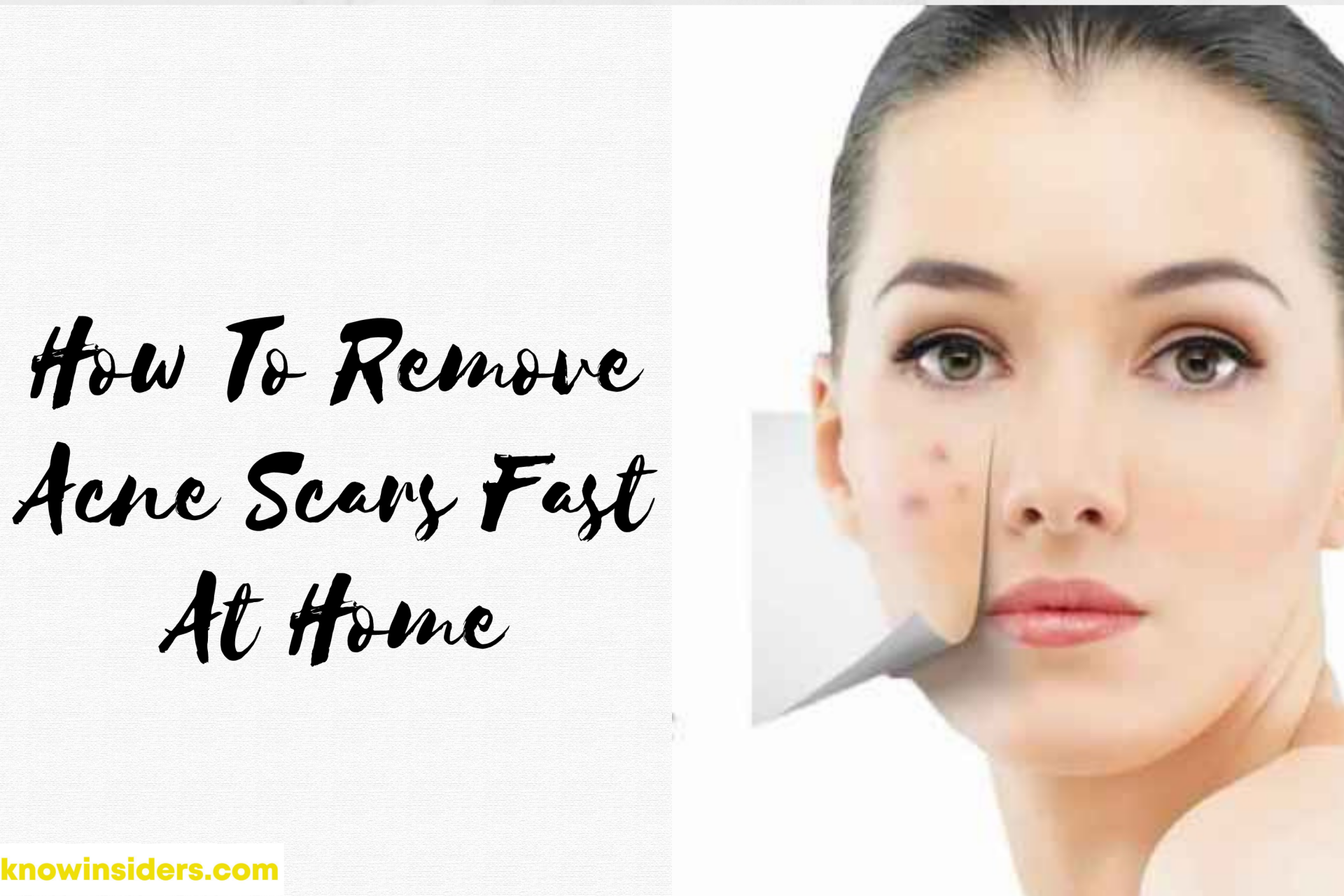 |
| Remove Acne Scars Fast At Home. Photo: KnowInsiders.com |
| Table of Contents |
Acne scars don't have to be permanent, but they can serve as an unwelcome reminder of acne and lower some people's self-esteem.
Don't worry if you have acne; it affects people of all ages, particularly teenagers and women going through the menopause.
When the body's hormones are out of balance, acne develops. Any hormonal changes cause glands to produce more oil than usual, which clogs skin pores and promotes the growth of bacteria.
You now understand why it occurs, but we all know that's not where it ends. If you've ever tried to solve the problem on your own and lost patience, you'll be aware that acne can occasionally leave scarring after a severe breakout.
What is an acne scar?
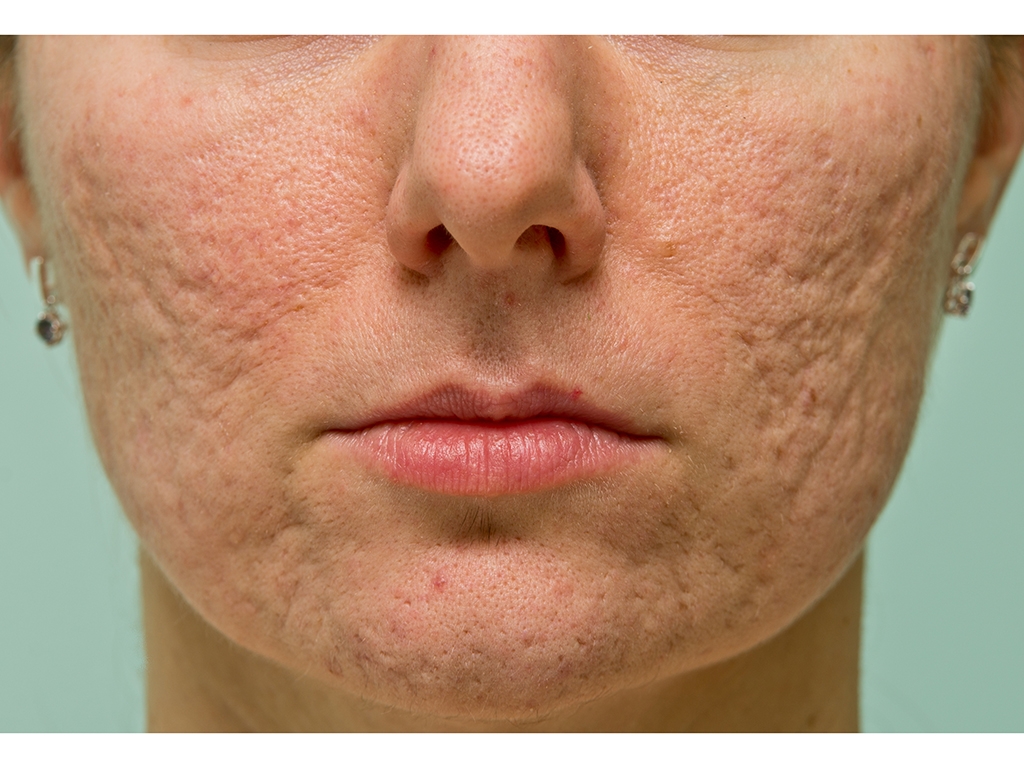 |
| Photo Global News |
Between the ages of 11 and 30, 80% of people experience hormonal changes, stress, menstruation, oil-based cosmetics, or birth control pill use as the cause of their acne. Only 5% of these individuals develop acne scars, though.
A bacterial infection can cause clogged pores to become reddish, swollen, and uncomfortable. Additionally, these acne lesions or breakouts damage the deeper layers of skin by penetrating deeply. By creating new collagen fibers, your skin attempts to heal these lesions, but this process could leave behind a noticeable scar or pit. When the acne clears, it might become more apparent.
As a side effect of acne, scarring can occasionally appear. Scarring can result from any type of acne spot, but it is more frequent when the most dangerous types of spots (nodules and cysts) rupture and harm the nearby skin.
It's crucial to avoid picking or squeezing your spots because doing so can leave scars.
What are the types of acne scars?
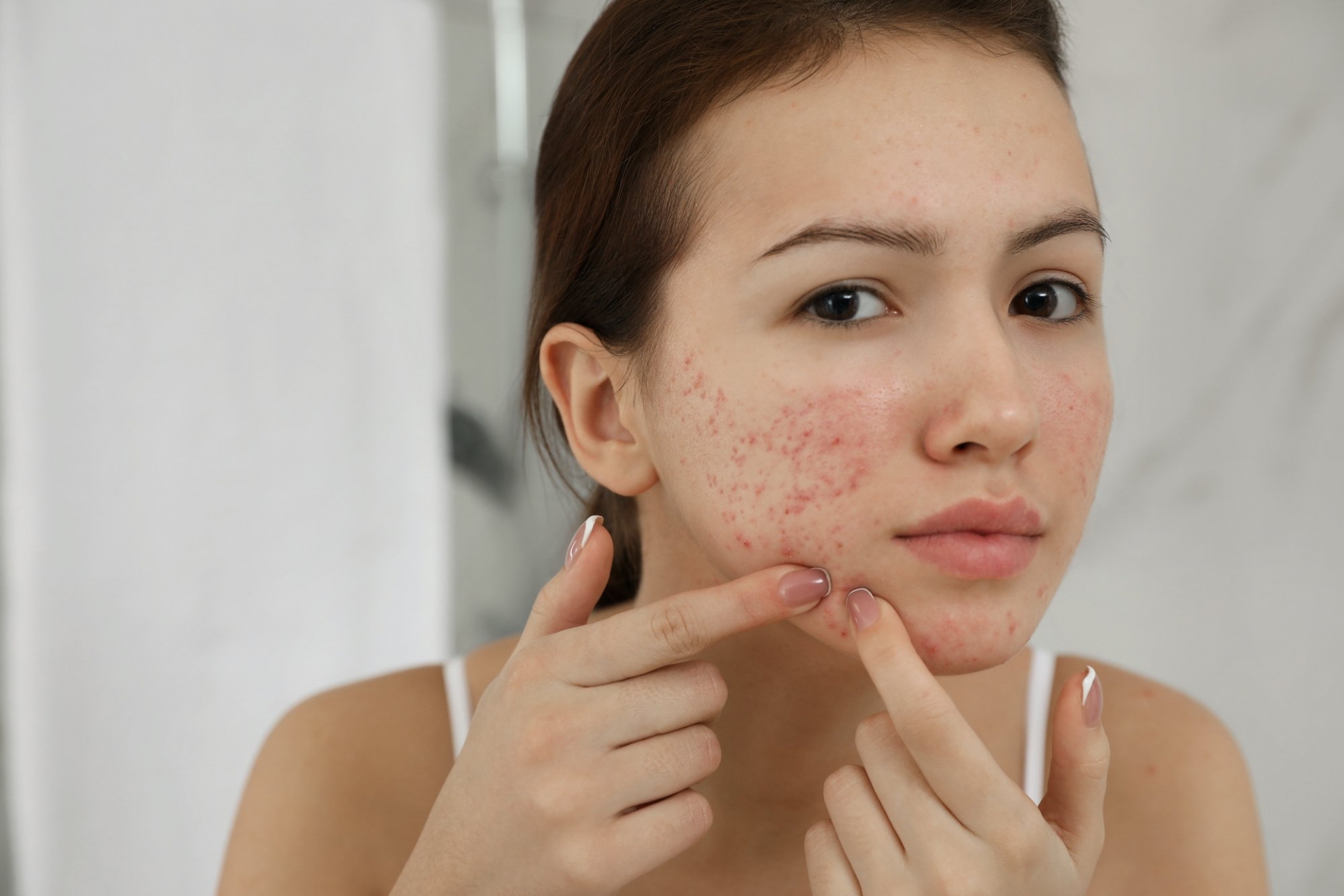 |
| Photo Averr Aglow |
Atrophic scar: This forms when skin tissue is lost.
Ice pick scar: These are typically small and leave visible skin-piercing holes.
Boxcar scars are depressed spots that resemble chickenpox scars and are typically round or oval in shape.
Rolling scars: These can be found where the skin is thicker, usually on the lower cheeks and jaws. The indentations slope, resulting in wavy, uneven skin.
When the skin produces too much collagen to treat acne wounds, a mass of raised tissue known as a hypertrophic or keloid scar results. It may itch and feel tender.
Are acne scars permanent?Time for some positive news now. According to Christenson, there are definitely things you can do to lessen acne scarring once it has already occurred. According to Christenson, the type of scarring you have will determine the best course of treatment, with indentation scarring frequently necessitating more sophisticated care. Start by experimenting with at-home topicals for acne scarring that are designed to reduce hyperpigmentation, such as brightening serums or items containing retinol. The one thing to be aware of when using retinol is that it can make your skin more sensitive to the sun. While using a retinol product, you should still use sunscreen to protect your skin, but you should be extra careful to do so, advises Christenson. |
Best natural remedies to combat acne scarring
Aloe Vera
 |
| Photo bachhoaxanh |
Aloe Vera is anti-inflammatory and has antibacterial properties so is a great tool in your acne scar treatment arsenal.
What to do:
You’ll need the actual aloe vera leaf - scoop out the gel after you cut it open or you can use
Apply the gel to the scars and massage it in.
Leave it for 30 minutes. Rinse it off.
Repeat 2 or 3 times daily.
OR
Mix 1 tablespoon of aloe vera gel and 2 or 3 drops of tea tree essential oil.
Apply it to the scar.
Rinse it off with cold water after 10 to 15 minutes.
Use once daily.
Lemon
 |
| Photo solid starts |
Lemon is a good all-natural remedy.
Lemon works as a natural bleach and assists in fading all types of skin scars.
It improves skin elasticity, encourages the growth of new skin cells, and removes dead skin cells.
What to do:
Apply fresh lemon juice directly on to the scars using your fingertips or a cotton bud.
Leave it for 10 minutes, then rinse it off with water.
Repeat 1 or 2 times a day.
Mix equal amounts of lemon juice and honey.
Use a cotton ball to apply to the scars.
Leave it for 10 to 15 minutes.
Wash it off with water and pat dry.
Repeat once a day.
OR
Mix 1 teaspoon lemon juice with 1 teaspoon of vitamin E oil.
Apply to your acne scars before going to bed.
Wash it off the next morning.
Repeat daily.
Coconut Oil
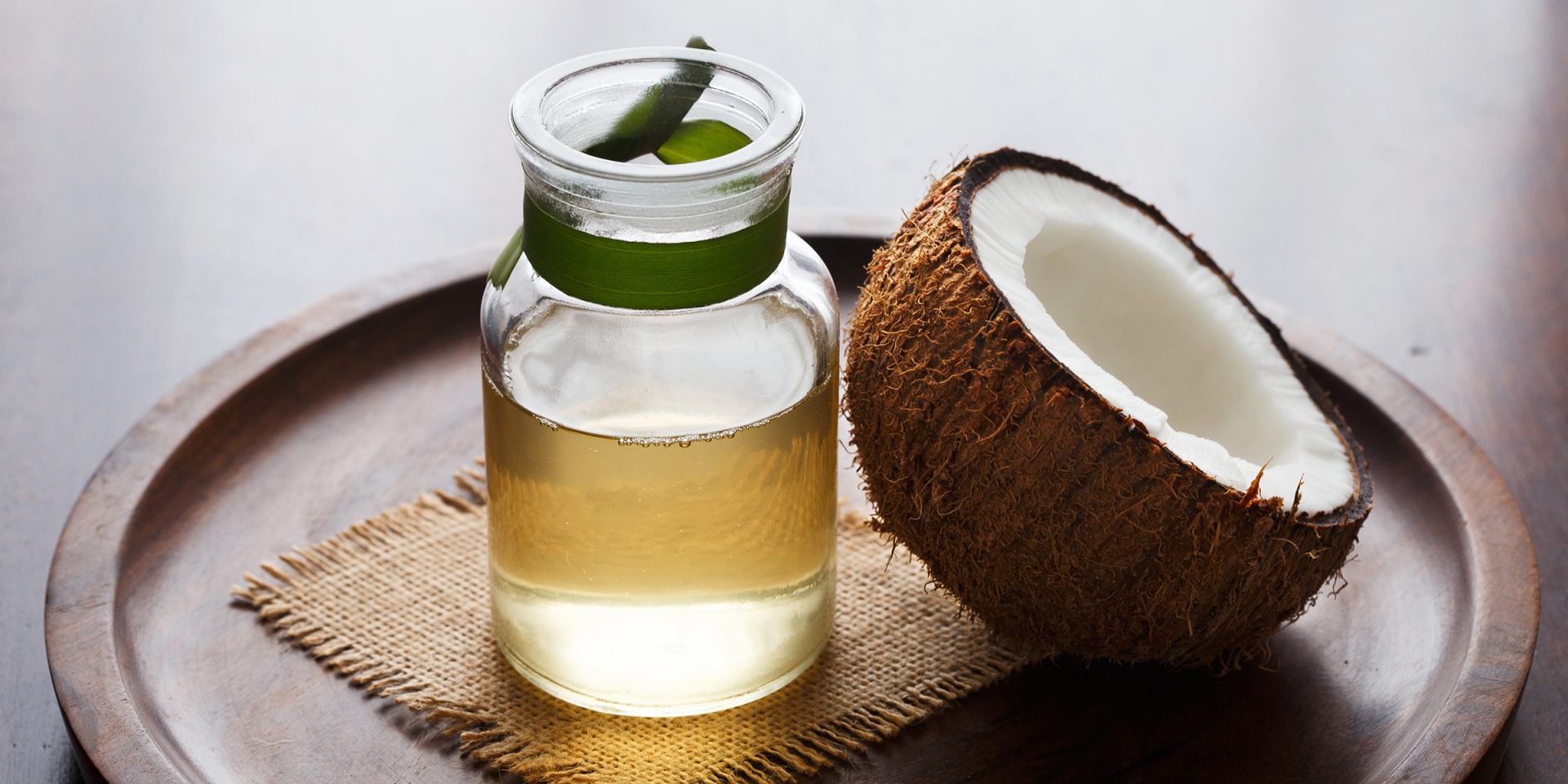 |
| Photo today |
Use coconut oil
This is a rich source of vitamin E and fatty acids.
Rub coconut oil into the skin
Apply warm coconut oil to the scars
Massage onto scars for 5 to 10 minutes
Leave for an hour
Rinse with warm water
Mum and boyfriend texted about killing daughter, 3, in days before she died
OR
Mix lavender oil with 1 tablespoon coconut oil
Apple to area and massage in for a few minutes
Leave for 20-30 minutes
Rinse it off with warm water
Repeat once or twice daily for several weeks
Vitamin E Oil
Vitamin E is another great ingredient for skin ( Image: Getty Images)
The oil is an antioxidant so helps repair the skin.
Puncture the end of a vitamin E gel capsule.
Take out the gel and apply directly on the scarred skin.
Do this 2 or 3 times a day.
OR
Mix 1 vitamin E capsule contents with 1 teaspoon of castor oil.
Apply it on the affected skin before bed.
Leave it on overnight.
Rinse it off the next morning - use warm water.
Repeat daily.
Other ways
Tea tree oil: This is a product derived from the Australian Melaleuca alternifolia tree that possesses antimicrobial and anti-inflammatory properties. Spot application of oil on the face may help clear comedones and even reduce scarring.
Turmeric powder: This may reduce bacterial growth due to its anti-inflammatory properties. It also helps skin regeneration and reduces scarring.
Margosa (neem): This has antibacterial properties that may reduce bacterial growth in skin pores.
Shea butter: This has anti-inflammatory properties that helps to reduce bacterial growth, which causes acne. It also reduces discoloration and acne scars.
READ MORE: Top 10 Most Bizarre Beauty Treatments in the world
Best home skin care ingredients for treating acne, according to doctors
Board-certified dermatologist Marisa Garshick, MD, recently stated that salicylic acid dissolves oil, unclogs pores, and prevents buildup in our guide to blackhead treatments.
According to board-certified dermatologist Eileen Deignan, MD, azelaic acid inhibits tyrosinase, an enzyme that produces pigment in the skin, and lowers the production of bacteria that cause acne.
A vitamin A derivative called retinol promotes skin exfoliation and fights acne. According to Deignan, it also encourages skin cell turnover and collagen production to treat post-acne hyperpigmentation and lessen the visibility of existing acne scars.
According to Green, alpha-hydroxy acids (AHA) help to clear clogged pores and exfoliate skin, which reduces acne, corrects uneven skin texture, stops the development of some acne scars and heals existing ones.
"Powerful antioxidant" vitamin C can aid in minimizing the redness and pigmentation of acne scars. According to Green, it also aids in preventing some acne scarring.
READ MORE: Top Fruits You Should Eat Daily For Glowing Skin
Medical treatments for severe acne scars
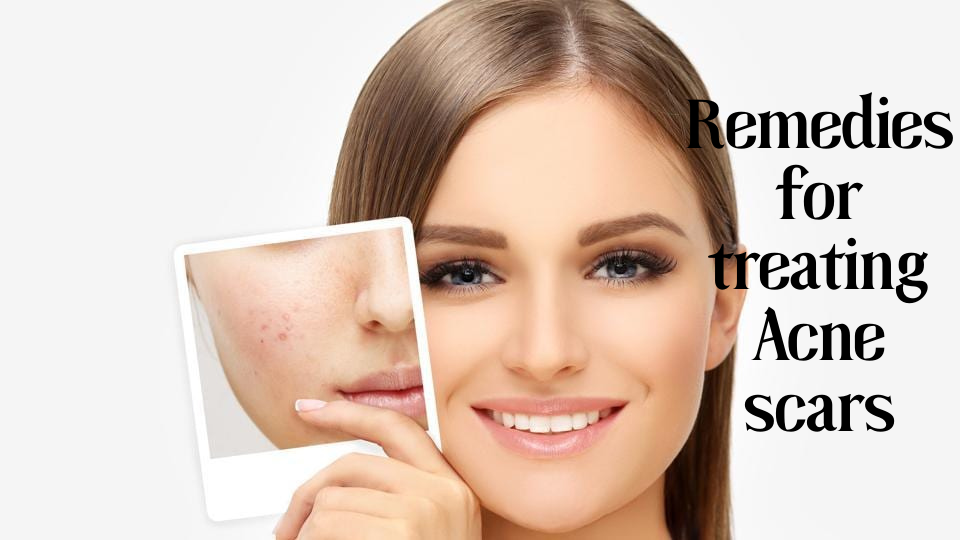 |
| Photo Kassaya |
There are several medical procedures that can lessen acne scarring. Depending on a person's skin type and the severity of the scarring, a dermatologist may advise various procedures.
Following are some medical remedies for acne scars:
Chemical peels
A dermatologist can suggest prescription medications to treat acne scarring.
A dermatologist can suggest a peel that is appropriate for a person's skin type, the severity of their acne, and their scarring.
Using a specific kind of chemical peel called trichloroacetic acid (TCA), six out of ten participants in a 2017 reviewTrusted Source on treatments for acne scarring found that their acne scarring had at least a 70% improvement.
Perhaps other chemical peels are less efficient. For instance, 25% of people who used glycolic acid reported no improvement in the visibility of scars.
To find the peel that works best for them, a person might need to experiment with various types.
Injections
If a person has hypertrophic or keloid scars, corticosteroid injections may help with the treatment of raised acne scar tissue.
A series of injections are typically used as part of the treatment. Once every few weeks, a dermatologist can administer these injections in their office while keeping an eye on the outcomes.
Dermal filler
Dermatologists occasionally advise using soft tissue fillers to lessen the visibility of scars.
Dermatologists might opt for a collagen-based filler, which might necessitate allergy testing. As an alternative, using fat that has been removed from another area of the body. Aside from hyaluronic acid and poly-L-lactic acid, they can also use other commercial fillers like polymethylmethacrylate (PMMA), hyaluronic acid, and PLLA.
The best dermal fillers for atrophic scars are temporary ones. Usually, a course of treatment lasts six to eighteen months.
However, a person can speak with their dermatologist about some permanent options.
Microneedling
In order to encourage the body to produce more collagen, microneedling involves inserting tiny needles into the skin around the scar. By enhancing skin smoothness, this collagen may lessen the appearance of acne scars.
According to a 2017 review, microneedling enhanced the appearance of acne scars by 31 to 62 percent.
Microneedling, though, can have negative effects. Following the procedure, redness, pain, and inflammation are common side effects, but they eventually go away.
Laser treatment
Skin resurfacing with a laser procedure is done without the use of chemicals or scrubs. It exposes the younger skin cells beneath the top layer of skin, which can lessen the visibility of scarring.
However, not everyone is a good candidate for laser treatment because it depends largely on a person's acne scarring and skin type. Some people, especially those with sensitive skin, may also experience an adverse reaction to the treatment.
How to prevent acne scars from forming
King advised people to repress the urge to pop their pimples because doing so can lead to scarring, infections, hyperpigmentation, and inflammation from acne.
Even if you're careful not to pop your pimples, sometimes acne can leave behind scars and marks. King advised using skin care products containing active anti-acne ingredients like salicylic acid, benzoyl peroxide, and adapalene to "control it as well as possible" in those situations.
She suggested visiting a dermatologist for an intralesional cortisone injection when you see an inflamed acne starting to form because it helps reduce inflammation and the possibility of scarring.
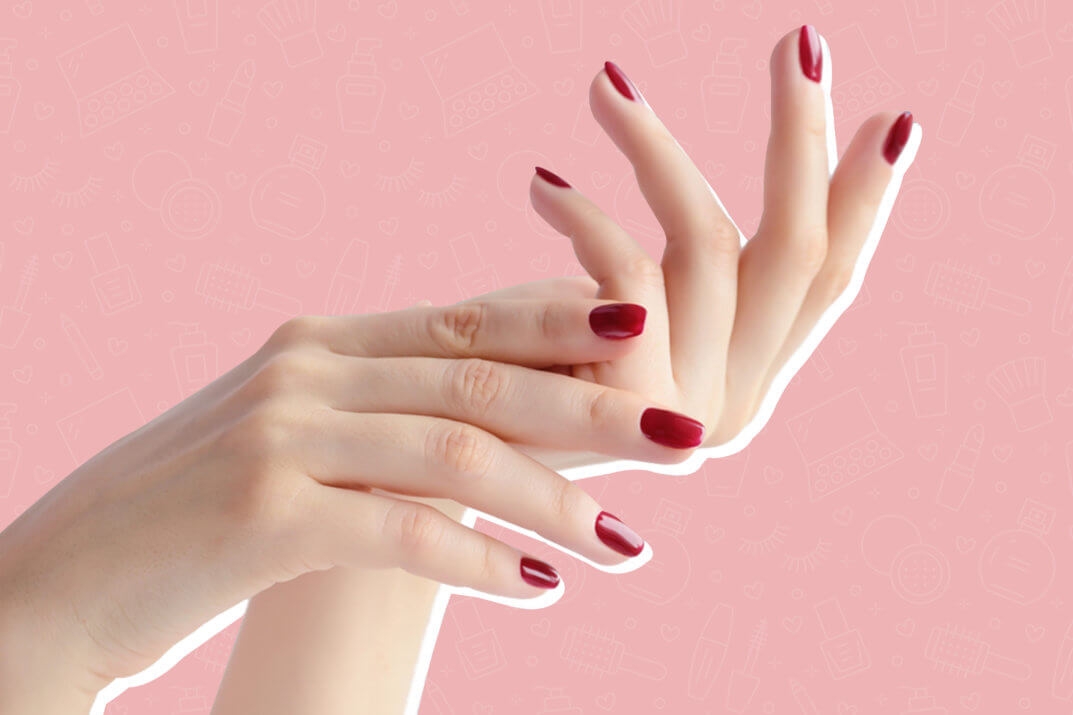 Tips To Keep Your Hands Looking Young Tips To Keep Your Hands Looking Young Looking at someone’s hands, we can guess their ages. No one wants to have hands that look older than their real age. Don’t worry, we ... |
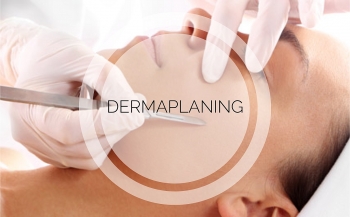 How to Safely Dermaplane At Home for A Younger-Looking Skin How to Safely Dermaplane At Home for A Younger-Looking Skin Dermaplane has become THE HOTTEST SKINCARE TREND when this super effective exfoliating treatment can bring us bright and luminous skin. However, do it yourself at ... |
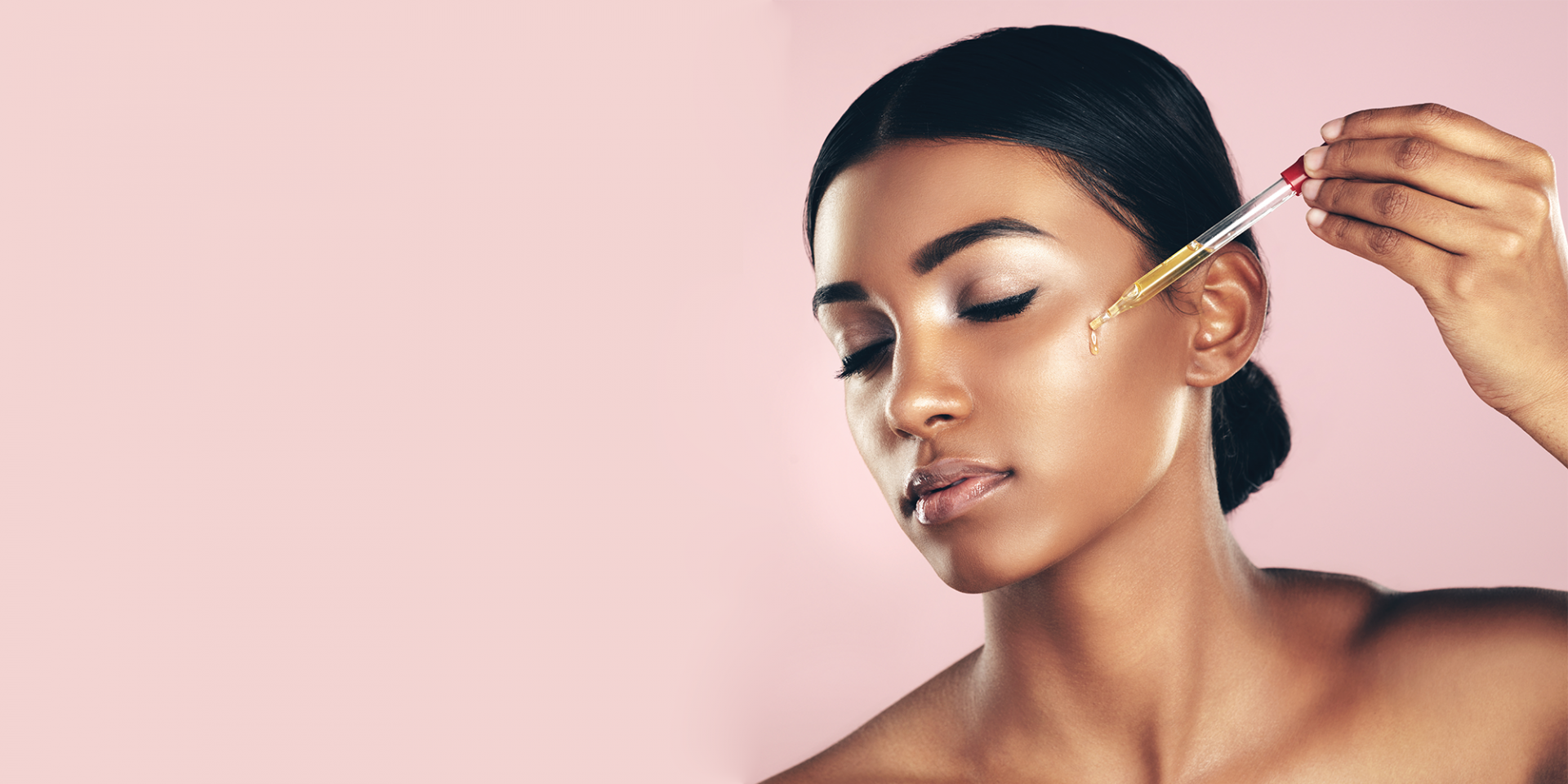 12 Fascinating Facts About the Skin 12 Fascinating Facts About the Skin Your skin is your largest organ and plays a vital role in detecting hot and cold, regulating your body temperature and protecting your muscles, bones ... |
























